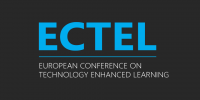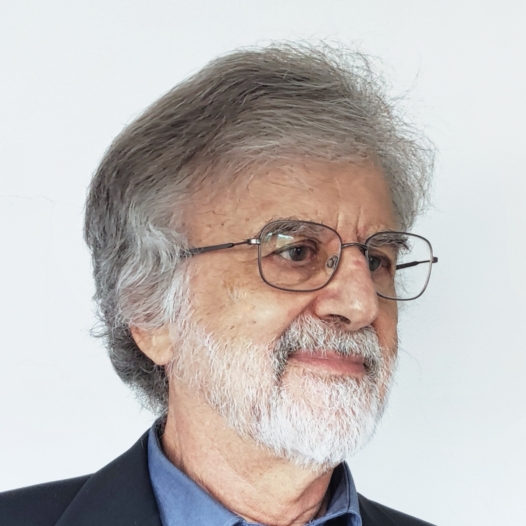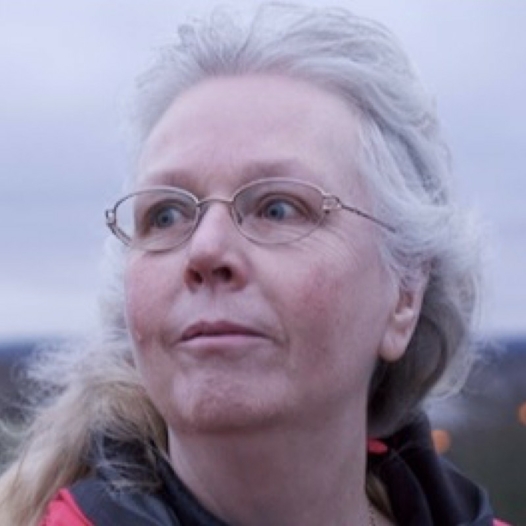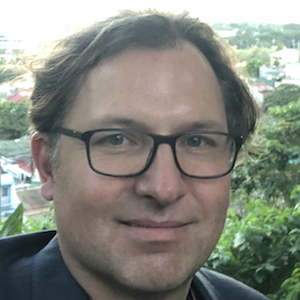Paul Prinsloo
University of South Africa (Unisa)
Paul Prinsloo is a Research Professor in Open and Distance Learning (ODL) in the Department of Business Management, College of Economic and Management Sciences, University of South Africa (Unisa). He is a visiting professor at the National Open University of Nigeria (NOUN), a Research Associate for Contact North/Contact Nord (Canada), a member of the Center […]
Abstract: Knowledge, knowing and coming to know have always been entangled in past and existing power relations in the nexus of culture, religion, gender, race, technology, craft associations, guilds and disciplinary fiefdoms. Enter Generative Artificial Intelligence. And suddenly we find ourselves in a ‘crisis of proposals and a crisis of utopias’, in a time ‘when the old is dying and the new cannot be born’ and where the seeming inevitability of algorithmic life is already changing teaching and learning. In this reflection, I would like to take stock of what human-centered, responsive and responsible knowledge, knowing and coming to know may look like in an age of Generative Artificial Intelligence.
Paul Prinsloo is a Research Professor in Open and Distance Learning (ODL) in the Department of Business Management, College of Economic and Management Sciences, University of South Africa (Unisa). He is a visiting professor at the National Open University of Nigeria (NOUN), a Research Associate for Contact North/Contact Nord (Canada), a member of the Center for Open Education Research at the Carl von Ossietzky University of Oldenburg, Germany, a Fellow of the European Distance and E-Learning Network (EDEN), member of the Executive Committee for the Society of Learning Analytics Research (SoLAR) and serves on several editorial boards. Paul is an internationally recognised researcher and has published numerous articles in the fields of teaching and learning, student success in distributed learning contexts, the ethical collection, analysis, and use of student data in learning analytics, and digital identities.
Antonio Dias de Figueiredo
University of Coimbra, Portugal
António Dias de Figueiredo is emeritus professor of Information Systems at the University of Coimbra, where his research is devoted to IT in Learning & Education, Research Methods, Science and Technology Studies, and Philosophy of Engineering and Design. He was Vice-President for Western Europe of the Intergovernmental Informatics Program of UNESCO and member of the […]
Abstract: What have we learned from the pandemics about the ills of education? Are we willing to discuss the flaws in our teaching practices? Are we entirely conscious of our ailing planet? Are we prepared for an increasingly unpredictable world? Are we aware that the imminent universalization of artificial intelligence is likely to result in dramatic social changes in the near future? Are we ready to deal with the expanding cultural and ethical complexities of the use of technology? History shows that humankind remained primitive as long as it relied primarily on the instrumental applications of technology and that civilization did not emerge until agriculture was established as a comprehensive technical, social, and cultural assemblage of practices. If we continue to educate our children for the instrumental uses of technology, rather than encouraging them to incorporate their tools into everyday cultural activities, we may be preparing them for the past. This presentation proposes a shift in perspective from traditional technology-centered approaches to the use of technology in education to alternative sustainable teaching and learning practices that put the culture of education at the center.
António Dias de Figueiredo is emeritus professor of Information Systems at the University of Coimbra, where his research is devoted to IT in Learning & Education, Research Methods, Science and Technology Studies, and Philosophy of Engineering and Design. He was Vice-President for Western Europe of the Intergovernmental Informatics Program of UNESCO and member of the NATO Special Program Panel on Advanced Educational Technology. He chaired the PROMETEUS memorandum of understanding of the European Commission and the Context & Learning SIG of the European Kaleidoscope network. He was the proponent, in 1985, of the MINERVA Project, the Portuguese national computers in schools program, which he coordinated during its pilot three years. He has participated in various European projects, both as a partner and as a science advisor, and acted on various occasions as a consultant to the European Commission in matters regarding the definition of strategies for information and communications technologies in education. He has been awarded a Honoris Causa by the Portuguese Open University and the SigillumMagnum by the University of Bologna. He talked at over four hundred national and international events and authored over three hundred national and international papers.
Panel speakers
Rebecca Ferguson
The Open University, United Kingdom
Rebecca Ferguson is a Professor in the Institute of Educational Technology (IET) at The Open University in the UK, where she works on the Masters in Online and Distance Education (MAODE). Her primary research interests are educational futures and how people learn together online. She is lead author of the Innovating Pedagogy reports. This highly cited series of […]
Paul Prinsloo
University of South Africa (Unisa)
Paul Prinsloo is a Research Professor in Open and Distance Learning (ODL) in the Department of Business Management, College of Economic and Management Sciences, University of South Africa (Unisa). He is a visiting professor at the National Open University of Nigeria (NOUN), a Research Associate for Contact North/Contact Nord (Canada), a member of the Center […]
Antonio Dias de Figueiredo
University of Coimbra, Portugal
António Dias de Figueiredo is emeritus professor of Information Systems at the University of Coimbra, where his research is devoted to IT in Learning & Education, Research Methods, Science and Technology Studies, and Philosophy of Engineering and Design. He was Vice-President for Western Europe of the Intergovernmental Informatics Program of UNESCO and member of the […]
Marco Kalz
Heidelberg University of Education, Germany
Marco Kalz is a full professor of technology-enhanced learning at the Heidelberg University of Education. He is also affiliated to the UNESCO chair of open education of the Open University of the Netherlands. His research interest lies on the use of open education, pervasive technologies and formative assessment to support self-directed lifelong learning. He has […]
Panel moderator
Marcus Specht
Delft University of Technology, Netherlands
Prof. Dr. Marcus Specht is Professor for Digital Education at the Technical University of Delft and Director of the Leiden-Delft-Erasmus Center for Education and Learning. He also is scientific lead of of TU Delft for the 4TU Center for Engineering Education. He received his Diploma in Psychology in 1995 and a Dissertation from the University […]





